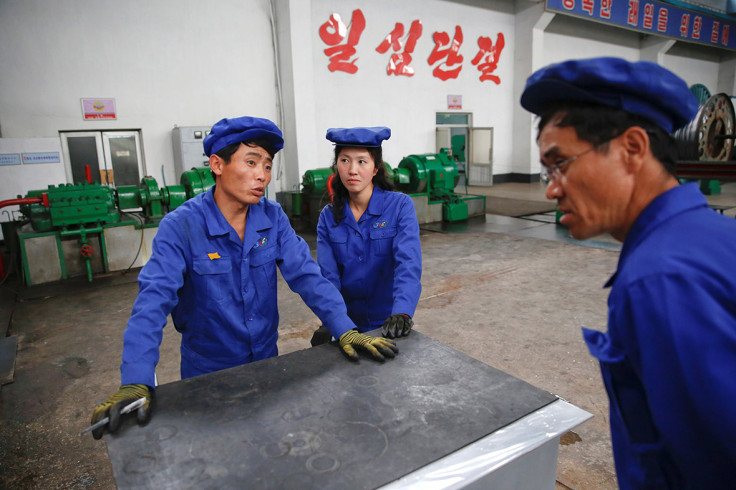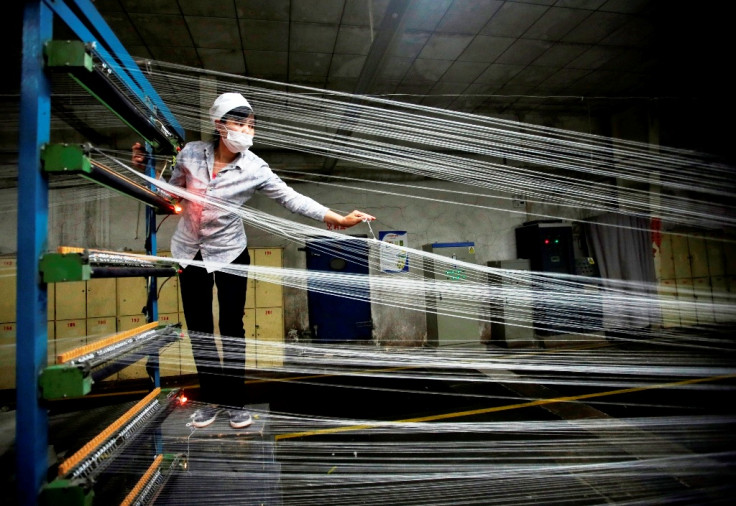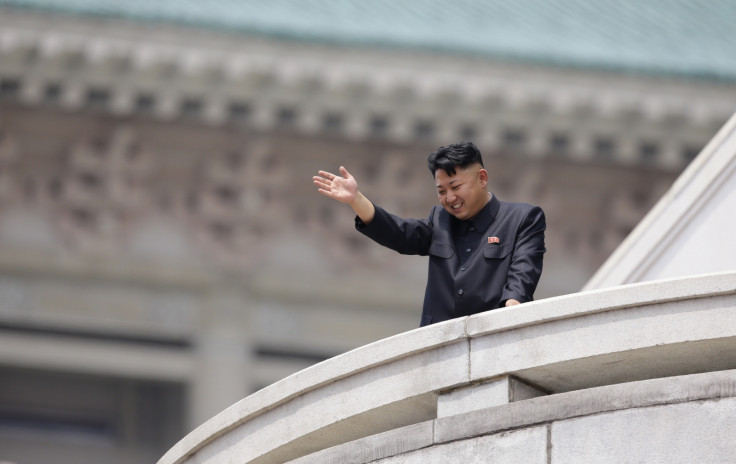'Made in China' clothes are actually manufactured in North Korea and exported across world – report
The new UN sanctions against the Kim Jong-un regime do not ban textile exports.
Clothes carrying "Made in China" labels are reportedly not manufactured in the mainland but in the reclusive North Korean border city of Dandong, according to Korean-Chinese businessmen and traders.
While it is believed that North Korea is getting further isolated from the world with ever-tightening UN sanctions, in reality, it has been earning money by indirectly exporting textiles to various countries, Reuters reported on Sunday (13 August).
On 5 August, the UN Security Council unanimously agreed to slap economic sanctions on the Kim Jong-un regime, targeting the exports of seafood, coal, iron ore, iron, lead and lead ore.
The new UN sanctions, which were imposed to punish the country over its nuclear and missiles programs, will see North Korea's $3bn (£2.3bn) annual export revenue slashed by a third.
But the 15-member council did not ban textile exports, which Chinese textile firms are said to be taking advantage of by availing cheap labour from across the border.
The clothes made in Dandong are reportedly sold in countries like the US, Japan, Canada, Europe, South Korea and Russia, Reuters reported an unnamed Korean-Chinese businessman as saying. He, like many others the news agency interviewed, did not want to be named because of the sensitivity of the subject.
"We take orders from all over the world," the businessman was quoted as saying. "We will ask the Chinese suppliers who work with us if they plan on being open with their client – sometimes the final buyer won't realize their clothes are being made in North Korea. It's extremely sensitive."
Chinese suppliers reportedly send fabrics and other raw materials to North Korean factories across the border to get the clothes stitched, which are then exported.
The finished garments are first shipped to China from the North Korean factories before being sent to the rest of the world.
By getting clothes made in North Korea, manufactures can reportedly save up to 75% of the production cost, a Chinese trader who has lived in Pyongyang said.

According to Chinese traders and agents in Dandong, it is a widespread practice.
However, not all brand owners from the western world are reported to be aware of this practice.
An Australian sportswear brand, Rip Curl, had to issue a public apology when it got to know that some of its ski gear was made in a North Korean factory while it carried the label "Made in China". The company blamed a rogue supplier for outsourcing to "an unauthorised sub-contractor".
According to the Korean-Chinese businessman, North Korean workers are more productive than their Chinese counterparts as they do not take too many toilet breaks, which they think can slow down their efficiency.
"North Korean workers can produce 30% more clothes each day than a Chinese worker," he said. "They aren't like Chinese factory workers who just work for the money. North Koreans have a different attitude – they believe they are working for their country, for their leader."
Besides, wages paid to North Korean labourers are reported to be far below the rates in other Asian countries.
North Koreans working at the now-closed Kaesong industrial zone across the border from South Korea were apparently paid an average salary of only $160 (£124) a month, whereas a labourer in China received $450-$750 (£348-£580) a month.

The wages paid in Kaesong were reportedly much higher than what North Koreans working in factories in other parts of the country received.
Because of the cheap labour in North Korea, some of the Chinese businessmen and traders are not surprised that Chinese textile companies send many orders to the rogue nation or employ North Koreans.
A North Korean factory worker employed in the Chinese mainland gets paid about 2,000 yuan (£232, $300), which is about half the average wages paid to Chinese workers, a factory owner said.
They reportedly get to keep only one-third of their income, while the rest has to be donated to the Kim Jong-un government.
Employing North Koreans in China is, however, no longer easy, a Korean-Chinese businesswoman from the Chinese port city of Dalian told Reuters.
"It's a hassle to hire North Korean workers. You need to have the right set-up. Their living space has to be completely closed off, you have to provide a classroom where they can take classes every day.
"They bring their own doctor, nurse, cook and teachers who teach them North Korean ideology every day," she said.
North Koreas reportedly work long hours in factories, from 7.30 am to around 10 pm.

© Copyright IBTimes 2025. All rights reserved.





















